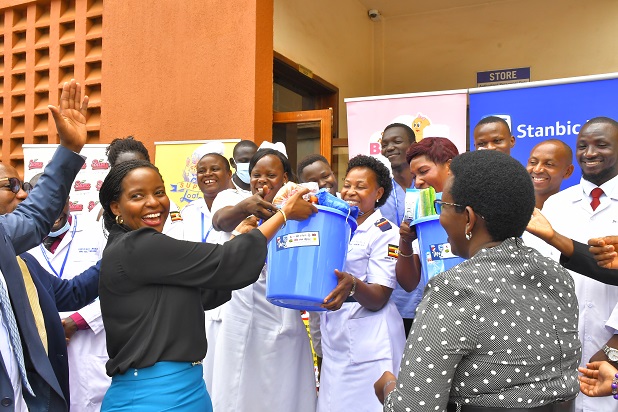As the debate over the efficacy of Covidex in the treatment of COVID-19 rages on, the Pharmaceutical Society of Uganda and a leading herbal medicine expert say that the remedy is safe for use in People battling COVID-19.
The National Drug Authority (NDA) mid this month banned the use of the drug saying the developer, Professor Patrick Ogwang had not subjected it to the required approvals. For a locally manufactured drug to be approved by the National Drug Authority, it has to go through clinical trials among other requirements.
But Pamela Achii, the President of the Uganda Pharmaceutical Society and Dr. Grace Nambatya, the Director of Research at the Natural Chemotherapeutics Research Laboratory say that while the herbal-based treatment has not been approved by the NDA, it has some ingredients to treat COVD-related infections and should not be wholly dismissed.
Acci said on Saturday that the remedy has the berberine plant as an active ingredient and its effectiveness has been proven in COVID-19 studies done elsewhere. Berberine has also been used in treatments for diabetes and liver disease. As a society, she adds that they are supporting clinical trials of the drug to quickly start.
She added that yesterday they finished the required protocols to have authentication processes start since Prof. Patrick Ogwang the innovator of the formulation has already applied for emergency use authorization.
Dr Nambatya said she had a 79-year-old patient battling COVID-19 in the Intensive Care Unit who was given COVIDEX and they improved. She however recommends that the remedy shouldn’t be given in the nose but rather through the mouth to throat since another herb known as Warburgia ugandensis in the product is sensitive to the membranes in the nose especially when someone is sick.
She says there’s inflammation in COVID-19 where remedies with peppery taste can be challenging especially if administered in the nose.
NDA’s Brain Sekayomba said that the Professor has submitted his application for the remedy to be notified, a process that can allow the product to be used under emergency use categorization even as clinical trials have not yet been done. He says so far, no natural product has been notified or authorized to be used as a cure.
According to NDA however, Ogwang was asked to submit additional documents to support his innovation ten days ago but they since got no feedback from him. Normally, the product notification process takes about three months to be completed. Once this process is completed and no red flags are noted in the formulation, it will be allowed for use by the general public.
The experts were speaking during the launch of findings by Regional NGO Twaweza in their Sauti Za Wananchi, a mobile phone survey in which they captured Kampala residents’ experiences and opinions on the use of herbal remedies.
In the surveys conducted from July to August 2020, and December to January 2021, they found close to half of the residents in Kampala believe drinking herbal combinations can cure COVID-19. Also, the findings show that three out of ten people believe steam inhalation cures COVID-19 whereas four out of ten believe that taking Vitamin C, a drug whose use among those on homecare for COVID-19 can actually cure the disease.
Overall, 50 per cent of the people surveyed wrongly believe that a person who doesn’t show symptoms even when positive doesn’t spread the disease, while 46 per cent believe hot climates prevent spread.
With such wide misconceptions and the fact that study findings show even in Twaweza surveys that are still being done that use of herbal remedies are on the increase, experts urged the regulators to expedite the process of its approval as it’s very important especially now that there is no known cure yet for the viral respiratory disease.
According to data currently being collected in Kampala and Kyotera, Twaweza says already they are seeing herbal medicine use to shoot up to 31 per cent from 17 per cent last year.
URN





